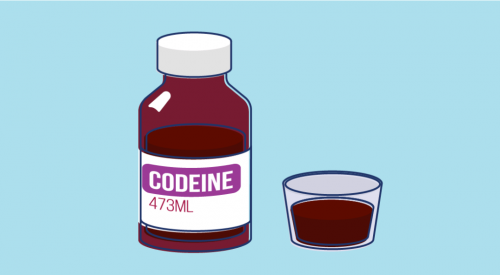
The misuse and abuse of, and overindulgence in drugs have become a common occurrence in all age groups but more prevalent in adolescents and adults.
Some become addicted to certain drugs unconsciously and some consciously. To abuse a drug simply means to use a drug for non-medical purposes.
For example, taking a drug only for the effect it produces is an outright abuse of such drug and it eventually leads to addiction with time.
One however can become addicted unknowingly by administering such drug without resultant cure for the intended illness.
Since it has been established that drug addiction means Substance Use Disorder (SUD), then it is important to state and make some clarifications on such substances which can potentially cause disorder when misused or abused.
Drugs can be classified based on addiction treatment and rehabilitation into five categories: Narcotics, Depressants, Stimulants, Hallucinogens and anabolic Steroids.
Narcotics are pain relieving drugs which work by inducing sleep, numbing, deadening and dulling the senses. Hence these drug categories are said to be controlled substances.
Drugs can also be categorised into two based on prescription: Over-the-Counter drugs and ‘Behind-the-Counter’ drugs.
OTC drugs are those that are available to people without a prescription. Illnesses associated with certain symptoms like colds, diarrhoea, acne and others can be treated with OTC medicines.
However, some OTC drugs have potential for misuse when overdosed. ‘Behind-the-counter’ drugs are available for sale only and strictly by prescription. The commonly misused OTC drugs are Dextromethorphan (cough suppressant and active ingredient in cough syrup) and Loperamide (an anti-diarrhreal ingredient).
Three types of OTC cough medicines exist-Expectorants (Guaifenesin-active ingredient), Suppressants (Dextromethorphan, camphor, menthol and eucalyptus oil as ingredients), and a combination cough syrup products which contain both Guaifenesin and Dextromethorphan.
However, Codeine (a narcotic pain-reliever and cough suppressant) is added to cough medicine preparation. It is used as antitussive (to relieve cough) and as analgesic (to relieve pain) and sometimes mixed with aspirin.
But this codeine-containing cough syrup is usually abused and misused because of its high addictive and habit-forming potential thereby inducing a state of Psychosis-a severe mental disorder with physical damage to the brain, marked by a deranged personality and distorted view of reality.
Teens take large doses of codeine-containing cough syrup to make them go ‘high’ with symptoms including hallucinations, delusions and paranoia. Experts also say that codeine causes sedation and drowsiness.
Excessive intake of codeine can cause organ failure and brain impairment. Dextromethorphan suppresses cough about half as effectively as codeine but with little addictive potential due to its low narcotic activity.
Another drug that is alarmingly being abused is Tramadol- a synthetic analgesic opiate used for the relief of pain.
Tramadol is said to be a narcotic analgesic because it works in the body to change how the body feels and responds to pain.
Analgesics are pain relieving drugs, e.g paracetamol and aspirin, while Narcotics are drugs that work by affecting (dulling) user’s sense of pain called brain receptors e.g codeine and morphine.
No narcotic pain medication (e.g. tramadol) should be sold over-the-counter by pharmacists but it’s unfortunate that tramadol can readily and easily be purchased without a prescription in most pharmacies in Nigeria.
A friend once told me that some teens take high dose of tramadol to numb and deaden their appetite for food.
Those teenagers, as reported, when they take excess doses of tramadol, may not go hungry for the next 24 hours or more-shocking! Another close contact once said after taking a recommended dose of tramadol, had no appetite for food all day.
It is recommended that tramadol should not be given to children under age 12, pregnant women, breast-feeding mothers and people allergic to it or people with severe asthma or breathing problem.
Tramadol may be habit-forming even at normal dose, how much more if abused and overdosed as the fatal side effect of misused or overdosed Tramadol, like any other narcotic may lead to reduced breathing, seizure (convulsion) and eventual death.
This is therefore calling on the government through its appropriate authorities, ministries and enforcement agencies to take drastic actions by arresting this increasing ugly trend of some OTC and ‘Behind-the-counter’ drugs being abused in the country.
As done in the case of codeine, when a BBC documentary aired on April 30, 2018 allegedly implicated an official of Emzor Pharmaceutical Company selling a codeine cough syrup without prescription, the federal government acted swiftly with a ban on the production and importation of codeine on the 1st of May, 2018.
• Ojewale is an industrial chemist, wrote from Idimu, Lagos.
END

Be the first to comment